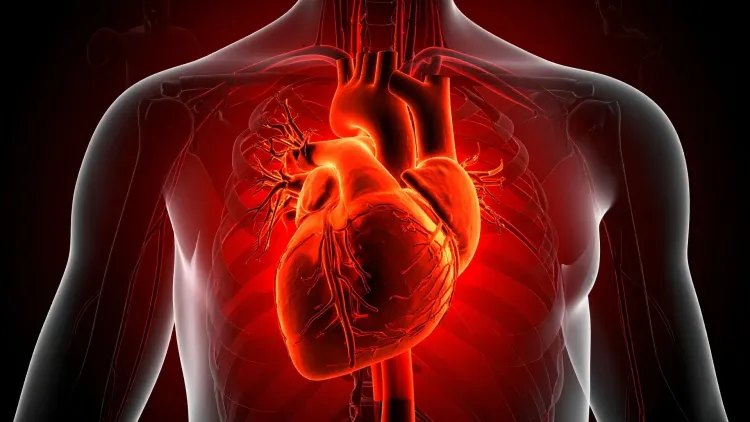Could Brighter Night-Time Light Exposure Harm Your Heart?

Synopsis
Key Takeaways
- Brighter night-time light exposure can lead to serious cardiovascular risks.
- Women and younger individuals are particularly affected.
- Minimizing light exposure during sleep may lower disease risks.
- Study utilized extensive personal light exposure data.
- Circadian disruption from artificial light can lead to metabolic issues.
New Delhi, July 7 (NationPress) Are you accustomed to dozing off with the lights on? If so, you might want to reconsider. A recent study conducted by a global team of researchers has revealed that increased exposure to bright lights at night could elevate the risks of five significant cardiovascular diseases.
Exposure to light at night disrupts the circadian rhythm, a known contributor to negative cardiovascular outcomes. However, the extent to which personal lighting habits correlate with an individual's cardiovascular disease risk remains unclear.
Involving 88,905 participants, this study, which has not yet undergone peer review, was carried out by the Flinders Health and Medical Research Institute in collaboration with researchers from the UK and the US. The findings suggest that minimizing exposure to night-time light may reduce the risk of developing cardiovascular diseases.
Shared on the pre-print platform medRxiv, the study indicates that women experience more night light exposure, revealing stronger links to conditions like heart failure and coronary artery disease. Additionally, younger individuals were found to be more susceptible to heart failure and atrial fibrillation.
According to the researchers, “Night light exposure is a significant risk factor for cardiovascular diseases. Beyond existing preventive measures, avoiding exposure to light at night could be an effective strategy for lowering cardiovascular disease risks.”
The research utilized approximately 13 million hours of personal light exposure data, monitored through wrist-worn light sensors over a week.
The results indicated that individuals who slept in the brightest conditions faced notably higher risks of developing coronary artery disease, myocardial infarction (heart attack), heart failure, atrial fibrillation (irregular heartbeat), and stroke, compared to those who slept in darkness.
These associations remained strong even after accounting for recognized cardiovascular health risk factors, such as physical activity, smoking, alcohol consumption, diet, sleep duration, socioeconomic status, and genetic predisposition.
The researchers noted that unnatural lighting may lead to circadian disruption, which “could initiate metabolic and vascular disturbances that heighten cardiovascular risk.”









